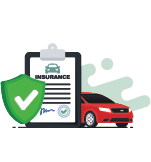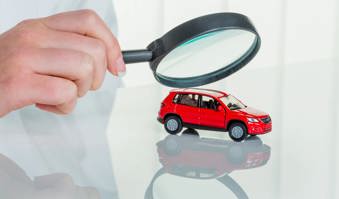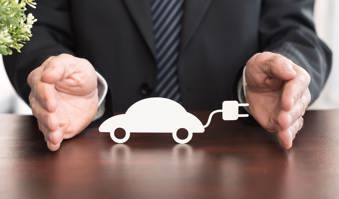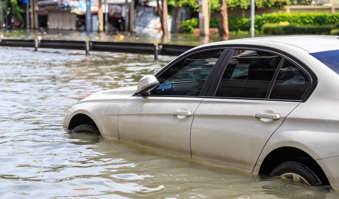7 Habits and Tips To Follow and Drive Safely During Ramadan
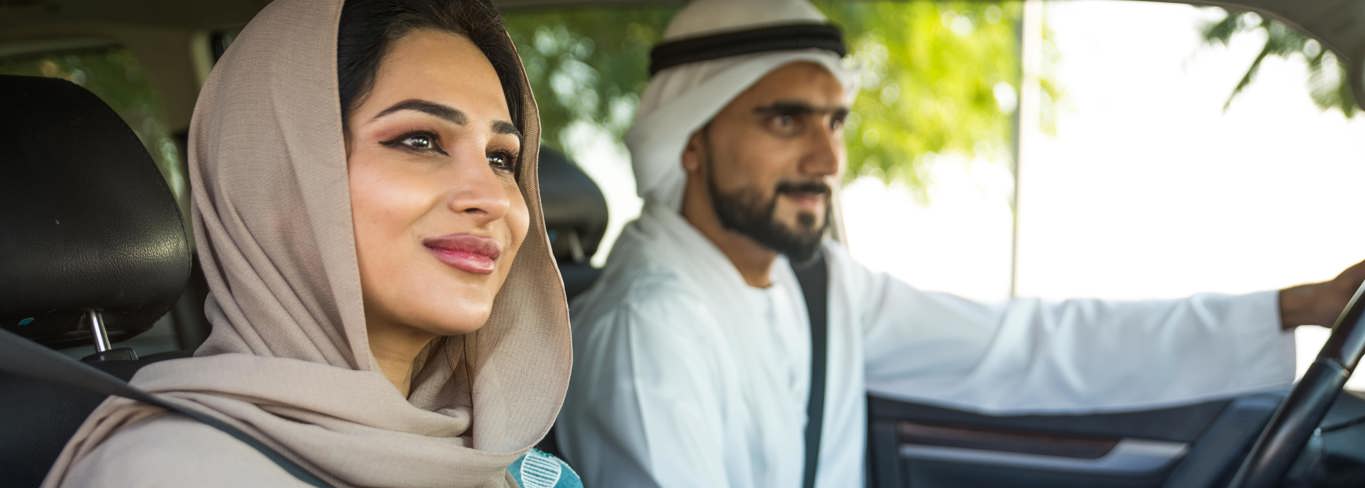 23 Mar, 2023
23 Mar, 2023
Driving during Ramadan can be challenging. Before you grab the wheel, make sure to follow these tips as you drive through the traffic this Ramadan.
Can you drive during Ramadan?
The answer to that is, yes, absolutely! However, what matters is not whether you can drive but how you drive during the season of Ramadan.
Ramadan is a challenging time for drivers in UAE. There are a lot of risks associated with driving during Ramadan, as due to fasting, driver attentiveness and alertness can be compromised. Therefore, vehicle owners must ensure to obey traffic regulations and drive carefully to be safe on road.
Quick Read Section
- The month of Ramadan requires additional caution behind the wheel in order to prevent accidents.
- Fasting from daybreak until dusk can cause exhaustion and lightheadedness.
- Lack of sleep impairs a driver's ability to concentrate while operating a vehicle and lengthens their reaction time.
- Avoid abrupt acceleration and passing while driving and make every effort to remain vigilant.
- Eat enough before you start your fast and avoid driving immediately after a large meal.
Why you should be careful driving during Ramadan?
Ramadan is a holy month during which Muslims fast from daybreak until dusk, which can cause exhaustion and lightheadedness. Therefore, drivers need to take proper care while driving during Ramadan as fasting in the hot weather in UAE can lead to fatigue and dizziness. Blood sugar levels are also likely to drop during fasting days.
In addition, sleep cycles also fluctuate during the month of Ramadan which leads to drivers experiencing poor focus and headaches while driving. Some individuals stay awake through the night while some rise early in the morning to do their prayers, which results in a lack of enough sleep. This affects driving performance by causing daytime drowsiness and increasing irritability and tiredness.
Driving tips to follow during Ramadan
Make sure to adopt these good practices while driving during the month of Ramadan:
1. Make sure sleep doesn’t get in the way of your driving!
The month of Ramadan is devoted to prayers and celebrations in UAE. Iftar parties and evening gatherings during Ramadan means no time to get enough sleep before work the next day. Lack of sleep affects the driver’s focus while driving on road and leads to increased fatigue. This makes it harder to remain alert while steering and studies show that fasting also increases reaction time to vehicles around as cognitive performance is lower than usual.
Be extra careful while driving during Ramadan to avoid getting into accidents. Alterations in sleep, work, and mealtimes tend to make drivers distracted during Ramadan, especially as they drive to their home from work. Therefore, ensure to sleep at least 7 hours before leaving for work. If you do find yourself yawning or feeling sleepy while driving, pull over to the side immediately.
2. Obeying traffic rules is mandatory, even during Ramadan!
Continue to follow all road rules and regulations just like you do during other times. As loss of sleep and poor focus is common during Ramadan, you must ensure to take extra caution while driving on road. Lack of attention can make you miss important traffic signs and signals. Watch out for other drivers who are fatigued and be tolerant towards them during this time.
Also, make sure to not speed while driving back home from work to prevent accidents. Avoid sudden acceleration and overtaking,
Be careful to not miss out on road exits and other signals while steering towards home. This could be a time when your body starts to feel irritable and tired as it is not fully accustomed to the change in eating and sleeping patterns. Make the decision not to drive yourself if you are feeling drowsy or exhausted.
3. Park immediately if you are feeling tired!
There can be instances when you feel extremely drained or unable to drive. In such cases, do not continue driving. Instead, pull over to the side of the road or park right away to prevent harming yourself and others. Another safe alternative is to use public transport for the entire month of fasting or switching to carpooling to reduce exertion if you find yourself tiring easily.
In case you have to go on long drives during the month of Ramadan, make sure to get enough rest before grabbing the steering wheel. Resting for short periods of time in between driving will help drivers relax and reach their destination safely. At the time of the call for Maghreb prayer, it is better to cease driving and stop at restaurants or cafeterias on your way to eat a light Iftar. Have at least a few dates and a glass of water before continuing your journey.
4. Be tolerant towards other drivers during Ramadan!
Always be patient with other drivers as you drive during the month of Ramadan. There might be drivers who are exhausted after fasting for a whole day and are feeling dizzy as they drive. Practice defensive driving techniques for your own safety as well as for the safety of other drivers. Let the holy virtues of tolerance practiced during the month of Ramadan reflect in your driving as well.
Keep a safe distance from vehicles in the front and stay alert and active to avoid accidents. Drivers are most prone to accidents during iftar time as motorists do not maintain a safe distance between vehicles as they rush to get to their homes in time.
5. Prevent fatigue and exhaustion by taking active breaks
As Ramadan involves fasting for long hours and eating meals at irregular times, the body is susceptible to dehydration. Therefore, ensure to eat enough before your fast begins and refrain from driving right after eating a heavy meal. Also, ensure to not exert yourself physically too much while driving during Ramadan.
Make your trips shorter than usual. Take breaks in between driving to wash your face and keep yourself alert. Carry some dates, snacks and a bottle of water in hand in case you are stuck in traffic during Iftar time.
6. Stay calm and level-headed.
Fasting during Ramadan can make you nervous and agitated while driving. However, avoid giving in to road rage. Do not get into disputes with other drivers, instead, try and reason with them calmly in the event of a collision.
7. Begin your journey early
Ramadan is a time when speeding is frequent, so it's crucial to leave your house on time. Monitor the latest traffic updates and begin your journey early to avoid last-minute rush while driving.
Keeping yourself updated with real-time traffic reports and planning your journey expecting road traffic will give you extra time to make up for hours lost in traffic This will help avoid tension while driving during Ramadan. Additionally, maintain proper speed limits and adjust your driving pace according to the weather conditions.
Car insurance protects you from financial losses resulting from accidents or any other property damage incurred during this time. It is mandatory for all vehicles registered in the UAE to have car insurance coverage. Should your car break down under any circumstance this Ramadan, contact your insurance broker for emergency roadside assistance if your policy covers it. You can also avail discounts, add-on-services, and rewards from insurance brokers while purchasing comprehensive car insurance. We have a range of insurance policies and 350+ professionals to assist you throughout the season of Ramadan.
No matter what your insurance requirements are, you can find the right options through an insurance broker at Gargash. Buy car insurance plans at a discounted premium and steer with confidence this festive season. Celebrate this Ramadan without bumps and bruises by investing in car insurance plans that offer the right coverage for your ride.
Contact us today to know more about Ramadan deals on car insurance.

Elevate Your Car Coverage to the Next Level!
Congratulations on taking the first step towards securing your car!
Now, imagine having even greater peace of mind with our Comprehensive Car Insurance plan.
Enjoy enhanced coverage, wider scope, and ultimate protection for your car.
Need more help?
 Buy Now
Buy Now Online Plans
Online Plans